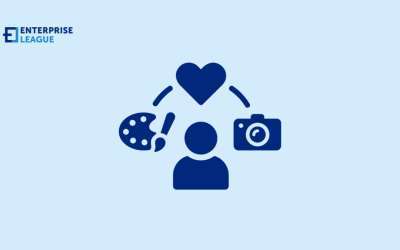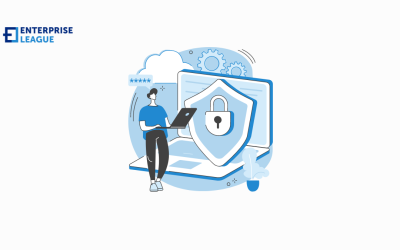All employees have a deep-rooted need for praise because they want to know their work matters to you and your organization. If employees are ignored or, worse, ridiculed after a job well done, they’ll turn into poor performers who lack motivation, care and drive to succeed.
But when employees are rewarded for their contribution, they feel pride and a willingness to do more work. To bring out the best in your staff, an employee recognition strategy is necessary.
What is employee recognition?
Employee recognition is the open praise of employee behavior or achievement. It’s all about acknowledging their hard work and accomplishments through appreciation. Any employer who regularly gives out authentic recognition to their employees notices positive behavioral shifts.
What every employer should know about employee recognition
An employee recognition policy can help you and your staff reaches their personal and career goals, but what else can it do?
Lack of recognition
According to Gallup, a lack of recognition is one of the most common reasons why employees leave organizations. They also found a correlation between an employee’s talents and how quickly they’ll leave. Recognition for work is also a top driver for candidate attraction.
Unfortunately, a common reason why these programs are overlooked is due to costs. However, an SHRM study found that 85% of companies who spent 1% more of payroll on recognition noticed a positive impact on engagement. It doesn’t take a lot of money to see a higher ROI.
But that’s not all. Employers who invest in employee recognition will benefit from:
- Improved team culture
- High loyalty and satisfaction
- Happier customers and clients
- Increased productivity
- More quality employees
Organizations with recognition programs see lower frustration levels and stronger business outcomes than those without. Even if these programs were expensive, they’d be worth it.
Every employee embraces recognition differently
While it’s true that employees want to be recognized, they don’t all want to receive feedback in the same way. Many employee recognition strategies fail because management doesn’t listen to the needs of their workers. The “how” of recognition is more important than the “why.”
We’re not talking about what to give them. A cash bonus may be the preferred method of praise, but the gesture will feel forced if it’s given at the wrong time or in a way that embarrasses them. Employees want to receive recognition in a way that matters most to them, for example:
- Some employees only want positive feedback from their managers, while others prefer it from their peers. Another group may want a mix of the two.
- While praise is preferred from a known party, an anonymous shout-out can hold just as much power because it feels more authentic.
- Receiving recognition in front of peers can be great for some but terrifying for others. It’s best to tailor recognition to the person’s personality.
- Managers should give praise for performance-based achievements and positive behaviors, such as helping a coworker with a project.
If managers want their employee recognition strategy to succeed, they must ask for feedback. Your employees are more comfortable giving their opinion using anonymous surveys. Keep in mind that data can’t tell you everything, as a productive employee isn’t necessarily engaged.
Employee recognition programs can be fragile
You can’t “set and forget” an employee recognition program. It takes consistent effort and the right staff to see the benefits of a strong recognition strategy. This can make building a case for its need difficult, so managers need to prove that employee recognition is worth their time.
The fine details of your program are likely to change and should change to keep up with your organization’s current goals. For example, if you want your team to sell $500,000 worth of product this year, you should raise it with inflation and as you gain more customers/clients.
Managers should also commit to the following initiatives:
- Using a multifaceted rewards and recognition program
- Have a plan for launch (or reliance) and implementation
- Align your organization on recognition
- Make the program visible via software
- Plan for consistent program delivery
- Measure the programs effectiveness weekly
- Revisit and revise the entire program regularly
Above all else, you need to give your employees a voice and keep upper management accountable. Some team members will adjust slowly to the program, and that’s okay as long as they’re committed to changing. With that said, any form of abuse should not be tolerated.
More must-read stories from Enterprise League:
- Proven ways to reduce the operating cost of your business.
- Concrete steps you can take on becoming a better boss.
- 26 proven customer appreciation ideas that business owners should implement.
- Engaging virtual networking events that you should not miss.
- Are you being professionally ghosted? Learn how to handle it the right way.
Related Articles
How to turn your hobby into a business in 2024
How long have you been dreaming to turn a hobby into a business and swim in cash? Stop dreaming, read our article and take action.
Home office security: 10 cybersecurity tips for remote workers
Working from home has become a reality and there are new challenges associated with remote work and maintaining the security of sensitive information.
6 supply chain challenges and how to solve them
When your business works with physical products it won’t be long until certain supply chain challenges arise. Knowing how to deal with these supply chain issues is crucial.
How to turn your hobby into a business in 2024
How long have you been dreaming to turn a hobby into a business and swim in cash? Stop dreaming, read our article and take action.
Home office security: 10 cybersecurity tips for remote workers
Working from home has become a reality and there are new challenges associated with remote work and maintaining the security of sensitive information.





